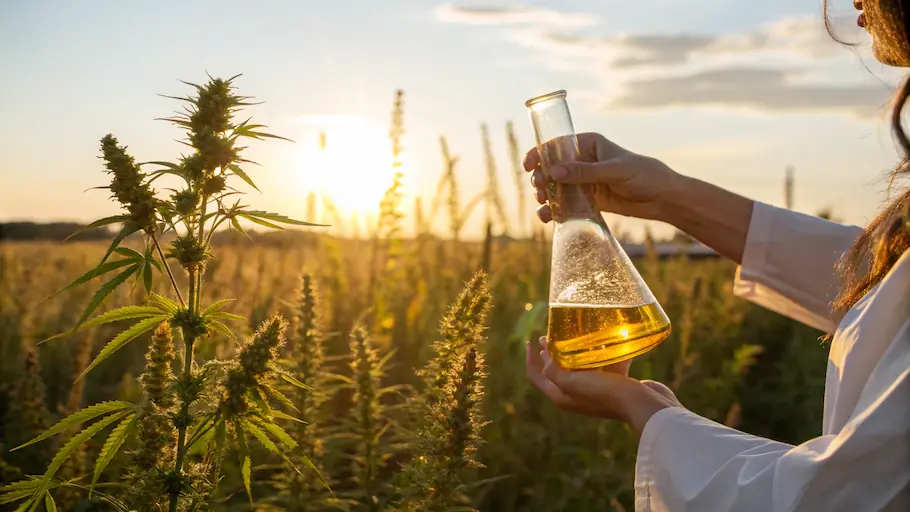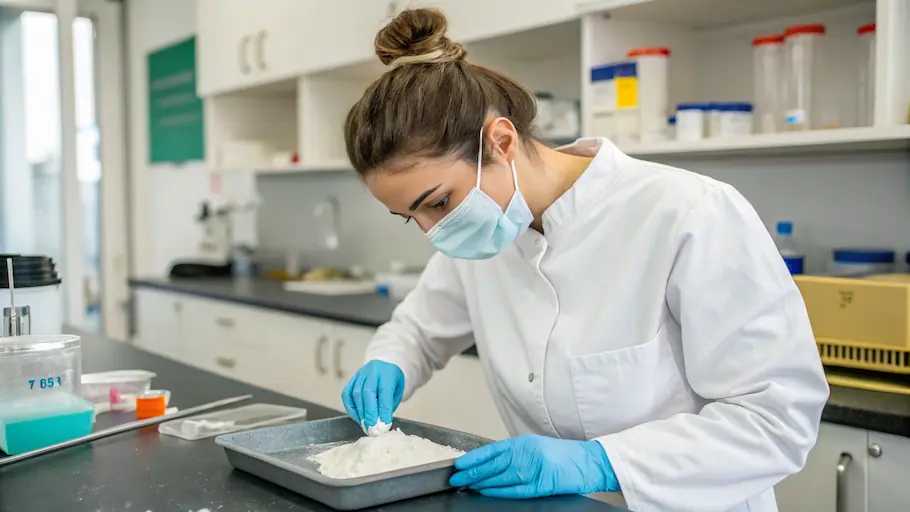What is CBD?
CBD, or cannabidiol, is a naturally occurring compound found in the cannabis plant, specifically within the hemp variety. Unlike THC (tetrahydrocannabinol), CBD is non-intoxicating, meaning it doesn’t produce a high. This characteristic has made CBD a popular choice for those seeking wellness benefits without psychoactive effects.
Understanding CBD: A Closer Look
CBD is one of over 100 cannabinoids identified in the cannabis plant and is the second most prominent compound after THC. It interacts with the body’s endocannabinoid system (ECS), a complex network of receptors that regulate functions such as mood, pain, sleep, and immune response. Unlike THC, CBD does not directly bind to the CB1 receptors in the brain, which is why it doesn’t cause intoxication.
Research suggests that CBD may have anti-inflammatory, calming, and even neuroprotective properties, although studies are ongoing. Its versatility and potential health benefits have contributed to its growing popularity in the wellness industry.
Applications for CBD
CBD is widely used for wellness and therapeutic applications. Below are some common uses and methods of consumption:
How to Consume CBD
CBD can be consumed in various forms, making it accessible to a wide range of users. Here are some popular methods:
- Sublingual Oils: CBD oil tinctures are placed under the tongue for quick absorption into the bloodstream.
- Edibles: Gummies, chocolates, and other infused foods offer a tasty and discreet way to consume CBD.
- Capsules: Ideal for precise dosing, capsules provide a convenient option for daily use.
- Topicals: Creams, balms, and lotions are applied directly to the skin for localized relief.
- Vaping: Inhaled CBD offers fast-acting effects but may not be suitable for everyone.
How to Create CBD Products
For businesses and entrepreneurs, understanding how to create CBD products is essential. The process typically involves:
- Extraction: Using methods like CO2 extraction to isolate CBD from the hemp plant.
- Formulation: Combining CBD with carrier oils, flavorings, or other ingredients to create the desired product.
- Testing: Ensuring the product meets safety and quality standards through third-party lab testing.
- Packaging: Designing attractive and informative packaging to appeal to consumers.
Key Characteristics of CBD
Understanding the unique characteristics of CBD can help users and wholesalers make informed decisions:
Non-Intoxicating Nature
CBD does not cause a high, making it suitable for daily use without affecting cognitive function. This feature has contributed to its widespread adoption in wellness routines.
Endocannabinoid System Interaction
CBD interacts with the ECS, potentially supporting mood, relaxation, and other wellness functions. This interaction is central to its therapeutic potential.
Versatile Applications
Available in oils, edibles, capsules, and topicals, CBD offers flexible use for various needs. Its adaptability has made it a staple in both personal care and professional wellness settings.
Types of CBD Products
CBD products are classified as full-spectrum, broad-spectrum, or isolate:
- Full-Spectrum CBD: Contains multiple cannabinoids, terpenes, and trace amounts of THC, believed to enhance effects through the "entourage effect."
- Broad-Spectrum CBD: Includes other cannabinoids but excludes THC, offering a middle ground for users.
- CBD Isolate: Pure CBD without any additional compounds, ideal for those seeking specific benefits.
Common Misconceptions About CBD
Despite its growing popularity, several misconceptions about CBD persist:
Is CBD the Same as Marijuana?
No, CBD is a compound found in the cannabis plant, often derived from hemp, which contains minimal THC and does not produce a high. It is distinct from marijuana, which is typically high in THC.
Does CBD Make You Feel High?
No, CBD is non-intoxicating and does not cause any psychoactive effects associated with THC. Its calming properties are often mistaken for intoxication, but they are entirely different.
The Growing Popularity of CBD
The demand for CBD products continues to rise as more people discover its potential benefits. From promoting relaxation and stress relief to aiding in sleep and skincare, CBD has become a cornerstone of the health and wellness industry. Its integration into everyday products, such as beverages, supplements, and beauty items, highlights its versatility and appeal.
Conclusion
CBD represents a promising frontier in wellness and therapeutic applications. Its non-intoxicating nature, interaction with the endocannabinoid system, and versatile formats make it an attractive option for consumers and businesses alike. As research continues to uncover its full potential, the role of CBD in promoting well-being is likely to expand further. Whether you're a wholesaler exploring new opportunities or a consumer seeking natural solutions, understanding CBD is key to unlocking its many benefits.



